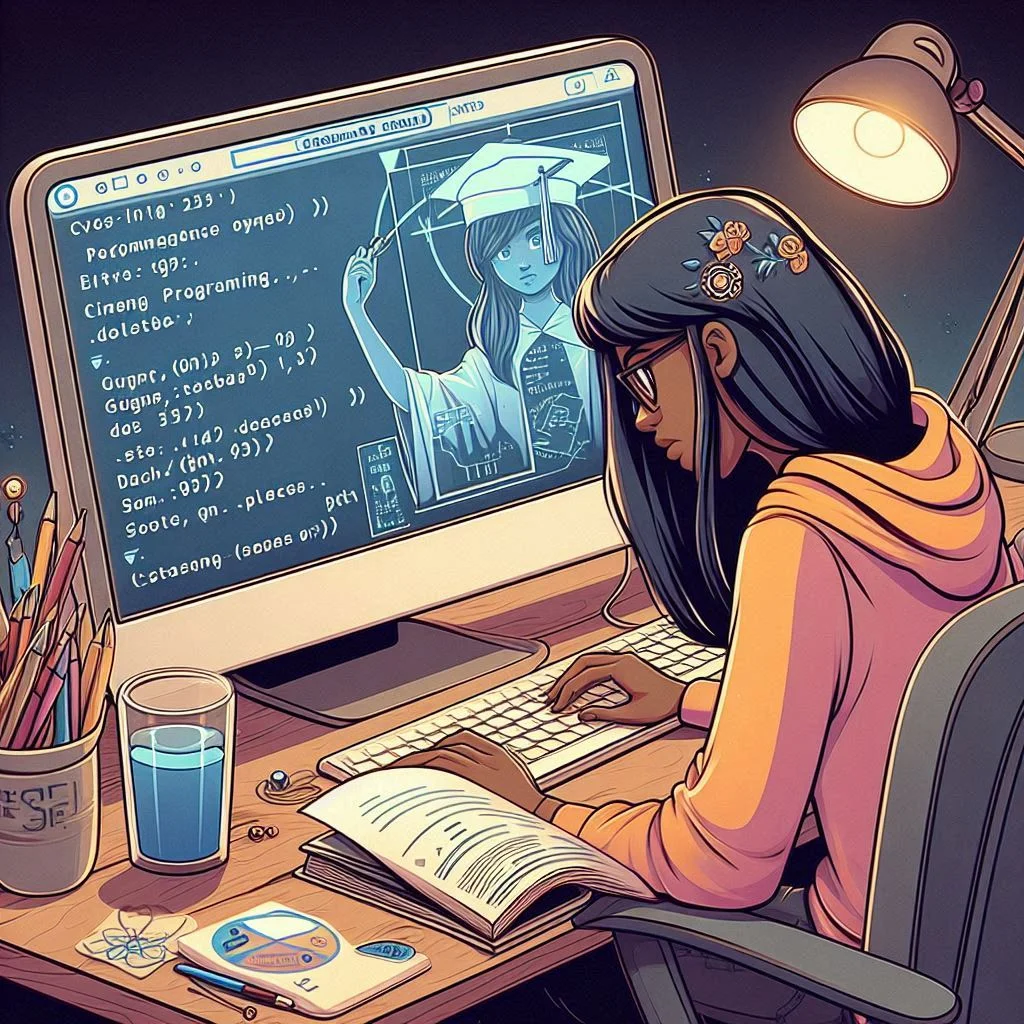Claim Your Offer
New semester, new challenges—but don’t stress, we’ve got your back! Get expert programming assignment help and breeze through Python, Java, C++, and more with ease. For a limited time, enjoy 10% OFF on all programming assignments with the Spring Special Discount! Just use code SPRING10OFF at checkout! Why stress over deadlines when you can score high effortlessly? Grab this exclusive offer now and make this semester your best one yet!
We Accept
- The Fateful Morning
- The Examination Hall
- The Paper Begins
- The Mid-Exam Hurdles
- The Complexity of Programming
- A Glimmer of Hope
- The Final Stretch
- The Conclusion
- Reflecting on the Experience
The day before my first university programming exam was a whirlwind of emotions. Anxiety and anticipation filled the air as my classmates, and I tried to grasp the enormity of the challenge ahead. The vastness of our syllabus loomed large, and I found myself oscillating between Java and Python, trying to remember the intricacies of each language. At one point, the thought of giving my first university programming exam filled my mind with immense pressure. Little did I know, the experience in the examination hall would be a rollercoaster of nerves and excitement.
The Fateful Morning
The morning of the exam, I was up early, reviewing notes on C++ and desperately trying to commit the syntax of Lisp and Haskell to memory. The sun seemed to rise too quickly, ushering in the moment I had been dreading. I made my way to the exam centre, a different building than usual, which added to my sense of disorientation. Faces of teachers acting as invigilators were unfamiliar, and the sterile environment of the hall added to my confusion.

The Examination Hall
Walking into the examination hall felt surreal. It was a vast room filled with rows of desks, and the air was thick with tension. I prayed for an easy paper, hoping that my knowledge of Machine Learning algorithms and Scala would be enough to see me through. They say that ‘well begun is half done,’ so I tried to steady my nerves as I took my seat and waited for the exam to begin.
The Paper Begins
When the invigilator finally handed out the papers, my heart was pounding. I flipped it over and was relieved to see questions that seemed familiar. The first section focused on Java and C. I breathed a sigh of relief; these were my strong suits. I quickly scribbled down the solutions, thankful for the hours I had spent coding practice problems.
The Mid-Exam Hurdles
But the relief was short-lived. The next section dived into Netlogo and OCaml, languages I had only skimmed through. I felt a pang of panic, my mind going blank as I struggled to recall the syntax. This is the harsh reality of exams – they test how much one can cram and reproduce. My thoughts raced, and I found myself glancing nervously at my classmates, who were equally engrossed in their papers.
The Complexity of Programming
Halfway through the exam, my fingers began to ache from the relentless typing. We had sections on Artificial Intelligence and Cryptography that required precise, detailed code snippets. The pressure was mounting, and the invigilators’ stern gazes seemed to bore into my soul. Honest and hardworking students like myself appreciated the strict control, but it was a curse for those who might have relied on unfair means.
A Glimmer of Hope
I took a moment to collect myself, recalling the adage that one usually forgets in the hall what they know. I devoted the next thirty minutes to carefully going through the remaining questions, which included OpenGL and Prolog. The complexity of Verilog and VHDL questions pushed me to my limits, but I managed to write down coherent answers, thanks to my earlier preparations.
The Final Stretch
The last hour was the most grueling. I tackled questions on Web Development, JavaScript, and PHP, my mind racing against the clock. The section on SQL had me second-guessing my queries, but I pushed through. I had saved some time for revision, and I used it to refine my answers on Operating System concepts and Haskell.
The Conclusion
As the invigilator called time, I felt a mix of exhaustion and relief wash over me. The three hours in the examination hall had been an ordeal, a test not just of my programming knowledge but of my endurance and composure under pressure. I handed in my paper and walked out, taking a deep breath as I stepped into the sunlight. Despite the challenges, I was happy that I had done my best.
Reflecting on the Experience
Reflecting on the experience, I realized that the examination system indeed encourages cramming and surface-level learning. The vast scope of our curriculum – covering everything from GoLang to Eiffel – makes it difficult to master each topic in depth. Yet, this experience was invaluable. It taught me the importance of thorough preparation and the resilience needed to tackle my programming exam.









